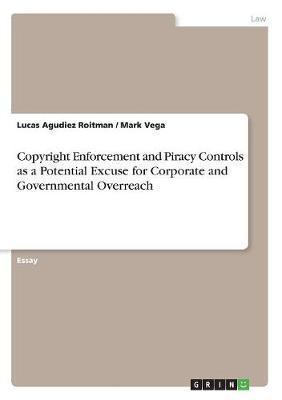Essay from the year 2014 in the subject Law - Media, Multimedia Law, Copyright, grade: A, Stanford University, language: English, abstract: Wikileaks and peer-to-peer (torrenting) networks have not only allowed for piracy (illegally downloading movies and music without paying the distributors) but have also enabled free access to education in developing countries, and increased transparency for the public to control corporations and governments by making confidential information public. People can now freely distribute government, military and corporate materials without asking for permission from the original creators of those materials. This information revolution has also exposed information about various crimes such as a swiss bank Julius Baer's money-laundering documents, unreported civilian deaths in the Afghan war, and the National Security Agency's online spy campaign on American citizens. Governments and privates are concerned about these leaks and the potential of future exposures due to the lack of regulation of the internet. This fear by powerful corporations and states has led to increased interest in controlling and limiting the free access to information in multiple ways, including the criminalization of piracy and illegal document sharing, both via websites like wikileaks and via peer-to-peer networks like torrents. Criminalizing piracy (copyright violations) when there is no profit involved, encourages monopolistic economies, limits education, and enables censorship and control of citizens, so we as users and citizens should publicly discourage policymakers from passing legislation to further criminalize and prosecute internet users who violate copyright law via piracy or document sharing when there is no direct profit involved.











